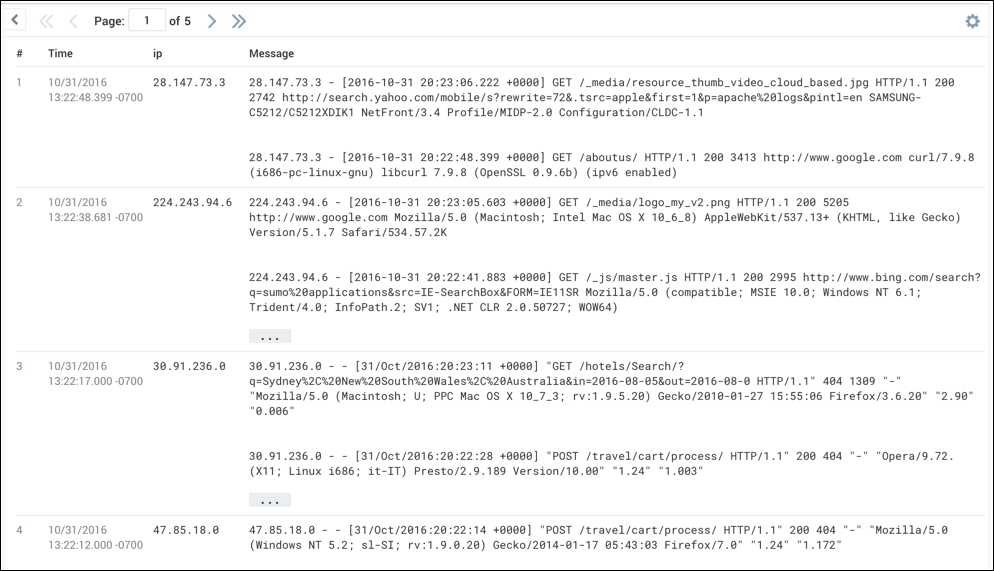Merge Operator
The Merge operator reduces a stream of events to a single event using a specified merge strategy. It is particularly useful as a subquery for the Transactionize operator. Each field can have a different merge strategy:
- takeDistinct - summarize the field using only distinct values
- takeFirst - summarize the field using the earliest value
- takeLast - summarize the field using the latest value
- join with separator - reduce the field by combining all values into a single string with the specified separator between each value. If no separator is specified a new line is used.
Syntax
-
mergeMerge _raw values and separate them with newlines. Adds a Time field containing the earliest timestamp.
-
merge <field>Merge values of the named field and separate them with newlines.
-
merge <field> [<strategy>] [as <field>]Merge values of the named field using the specified strategy and specify a new name for the field.
-
merge <field> [<strategy>] [as <field1>] [,<field> [<strategy>] [as <field2>] ]...Merge a comma-delimited list of fields with separate merge strategies. When no strategy is specified, join with new lines is implied.
Limitation
- The metadata field
_messageTimecan only use strategies takeFirst and takeLast.
Examples
The following query:
* | parse "BytesSentPersec = \"*\"" as BytesPersec
| merge BytesPersec join with "--", _messageTime takeLast
produces a result something like this:

A common case for using the merge operator with the transactionize operator is when all log messages have a common field, such as transaction_id or request_id. Using the merge operator with transactionize merges all the messages with the common fields, for example:
_sourceCategory=travelweb
| parse regex "(?<ip>[0-9]+\.[0-9]+\.[0-9]+\.[0-9]) - "
| transactionize ip (merge ip takeFirst, _raw join with "\n\n\n")
Which provides results like the following. Notice that all the logs from the same IP are now grouped in one record.
